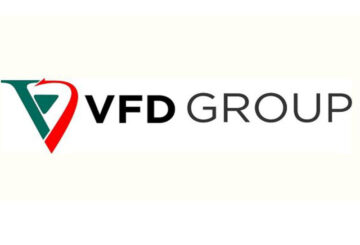The National Bureau of Statistics, NBS, on Wednesday said the total value of capital imported into Nigeria in the first quarter of 2017 was estimated to be $908.27 million, the lowest in ten years.

According to a new report tagged Capital Importation Report, released by the bureau on Wednesday, when compared to the $1.55 billion that the economy attracted in the fourth quarter of 2016, the figure represents a decline of $640.61 million, representing 41.36 per cent.
The decline in investment inflow, the report said, was due to the fall in “other investment” and portfolio investments category made up of equity, which dropped from $176.44 million in the fourth quarter of 2016 to $101.99 million in the first quarter of 2017.
Similarly, loans declined from $917 .01 million to $369.28 million while bonds, which recorded $25.4 million at the end of the last quarter of 2016, recorded nothing in the first quarter of the current fiscal year.
“Capital importation was particularly low in January, at $187.9 million; this was only the fourth month since 2007 in which capital importation was less than $200 m,” the NBS stated.
According to the report, the fall in foreign direct investments, FDI, came after four consecutive quarters of increase, while the fall in “other investment” followed three consecutive quarters of increase.
On a sector-by-sector basis, the report noted that in contrast to the previous quarter, there were no obviously dominant sectors.
The two sectors to account for the largest proportions of the value of imported capital were Servicing, which accounted for $146.05 million or 16.08 per cent, and Telecommunications, which accounted for $145.78 million or 16.05 per cent
Meanwhile, despite recording decreases, the Banking and Oil and Gas sectors were the third and fourth largest capital importing sectors, accounting for $126 million (representing 13.87 per cent of the total) and $101.08 million (11.13 per cent), respectively.
Four sectors recorded no capital importation in the first quarter of 2017 and they include drilling, hotels, tanning and weaving.
On capital importation by state, the NBS said the state to import the most capital into Nigeria in the first quarter of 2017 was Lagos, accounting for 95.32 per cent of capital importation, which represents a slight decrease in its share relative to the previous quarter, when it was 96.38 per cent.
Akwa Ibom and Abuja were the states to record the second and third largest amounts of imported capital, recording values of $18.36 million and $14.87 million respectively.
The country from which Nigeria imported the most capital was the United Kingdom, which accounted for $302.47 million, or 33.30 per cent of the total. This value represents a decline of 37.36 per cent compared to the previous quarter.
The country to account for the second largest value of capital importation was the United States, accounting for $215.66 million in the first quarter of 2017, or 23.74 per cent.
The next two largest investors in the period under review were Singapore and Mauritius, accounting for 8.09 and 7.86 per cent, respectively.


